
Here are two of the biggest lies we’ve been told:
- Olive oil and plant-based fats are “healthy” and safe for cooking.
- Omega-3 fatty acids are essential for human health.
Here's the truth:
Oxidized plant oils damage the body at a cellular level, and Omega-3s are not essential or even beneficial in the way we’ve been led to believe.
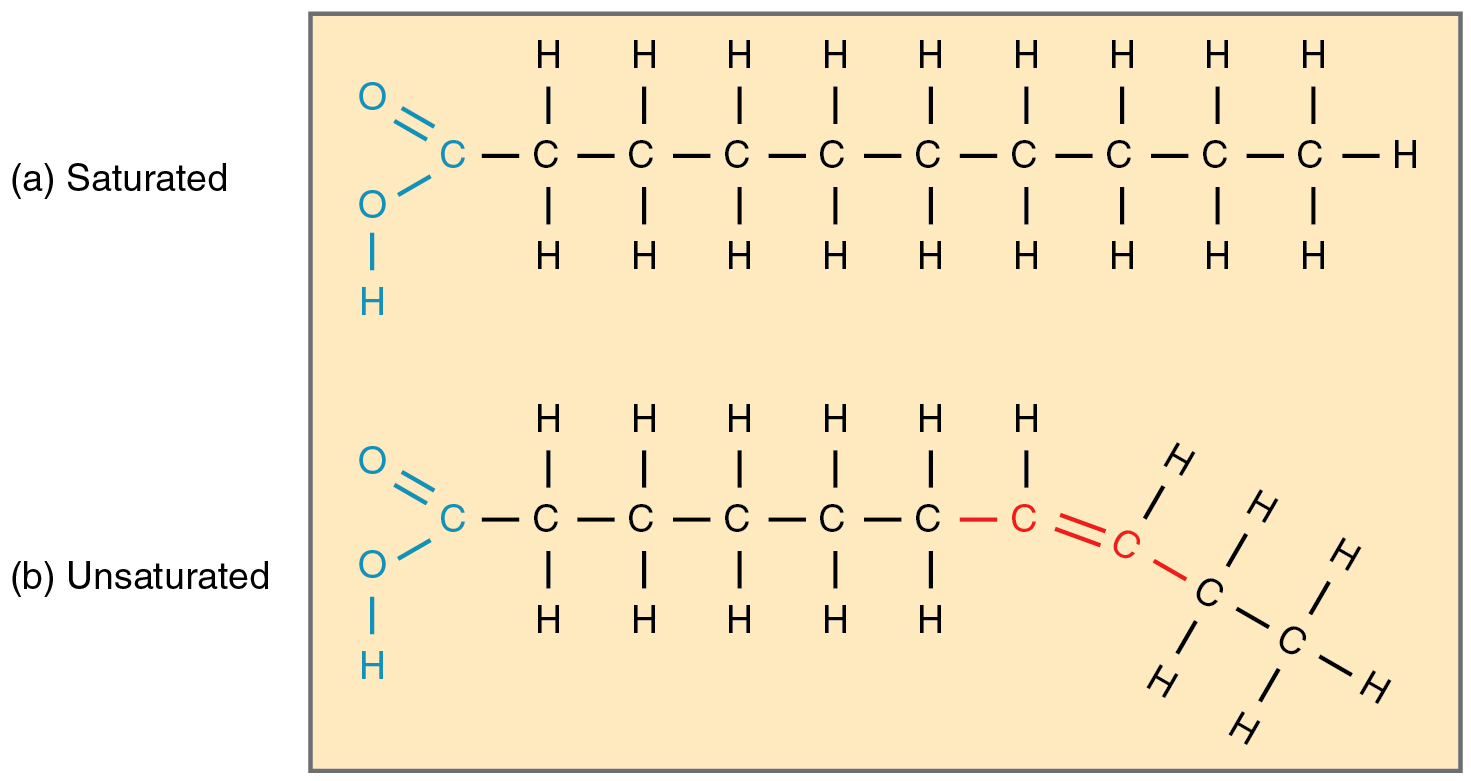
Fat: The Most Efficient Energy Storage
Fat isn’t bad—it’s how nature stores energy in its most efficient, long-lasting form. Animals, plants, and even humans rely on fat to store and release energy when needed. Traditional diets were rich in natural fats—butter, animal fats, coconut oil—without causing obesity or disease. The problem isn’t fat itself; it’s the processed foods and industrial seed oils that replaced real fats and disrupted how our bodies use them.
Sugar: Quick Energy, Not the Enemy
Sugar is another natural form of energy storage. Fruits, honey, and root vegetables are designed to fuel life—not destroy it. When sugar comes from natural sources, it’s balanced with fiber, minerals, and enzymes that help the body process it properly. The real problem isn’t sugar itself, but the artificial, refined versions that flood our diets today, stripped of their natural context and overloaded into processed foods.
Calories: The Energy of Life
Calories aren’t something to fear. A calorie is just a unit of energy, and without energy, there is no life. Nature didn’t design food to be our enemy—it designed it to fuel us, sustain us, and regenerate us. The idea that we should be starving ourselves, counting every calorie, and living in a constant state of energy restriction is completely unnatural. A well-nourished body, eating whole, natural foods, regulates energy on its own.
We've replaced natural, energy-rich foods with artificial, dead foods. Instead of embracing the nutrient-dense, energy-packed foods nature provides, we’ve been taught to fear them and substitute them with processed, synthetic, low-fat, and sugar-free alternatives that have left us more sick, tired, and overweight than ever.
The truth is simple: Fat, sugar, and calories are not bad. They are life’s natural energy storage, and when they come from whole, unprocessed sources, they fuel and sustain us the way nature intended. The key isn’t to fear them—it’s to return to eating real, whole foods the way we were meant to.
But were taught that weight loss is purely about eating fewer calories than we burn. And so we started counting our calories, eating 100-calorie snack packs, diet Coke, dairy-free milk, low calorie snacks, sugar-free versions with artificial sweeteners (and a side of metabolic damage), and low-calorie frozen meals loaded with chemicals.
And yet, somehow, obesity, metabolic disorders, diabetes, and chronic disease have still managed to skyrocket.
In 1950, Ancel Keys promoted the idea that fat (especially saturated fat) caused heart disease. He blamed the natural animal fats in our diets for getting into our blood and causing heart disease and stroke.

To Keys, fat, especially saturated fat, was the enemy of our health. He postulated that saturated fats produced cholesterol, and that cholesterol collected in the blood, harming our heart and causing strokes.
His hypothesis lead to widespread dietary guidelines recommending limiting saturated fat consumption. To this day of the most common warnings in dietary recommendations is to avoid saturated fat and to replace it with polyunsaturated fat.
In 1961, the American Heart Association (AHA) defined saturated fat as “the fat in whole milk, cream, butter, cheese and meat”, and this definition has persisted. The DGA 2020 states the following: “Saturated fat is commonly found in higher amounts in high-fat meat, coconut oil, full-fat dairy products like whole milk, ice cream, cheese, butter".
You know polyunsaturated fats, we call them essential fatty acids. You find them in fatty fish like salmon and mackerel, plant-based oils, seeds, and nuts. They're liquid at room temperature and commonly referred to as oils. Many refer to them as "healthy fats", and science calls them "essential fats" because the human body cannot synthesize them.
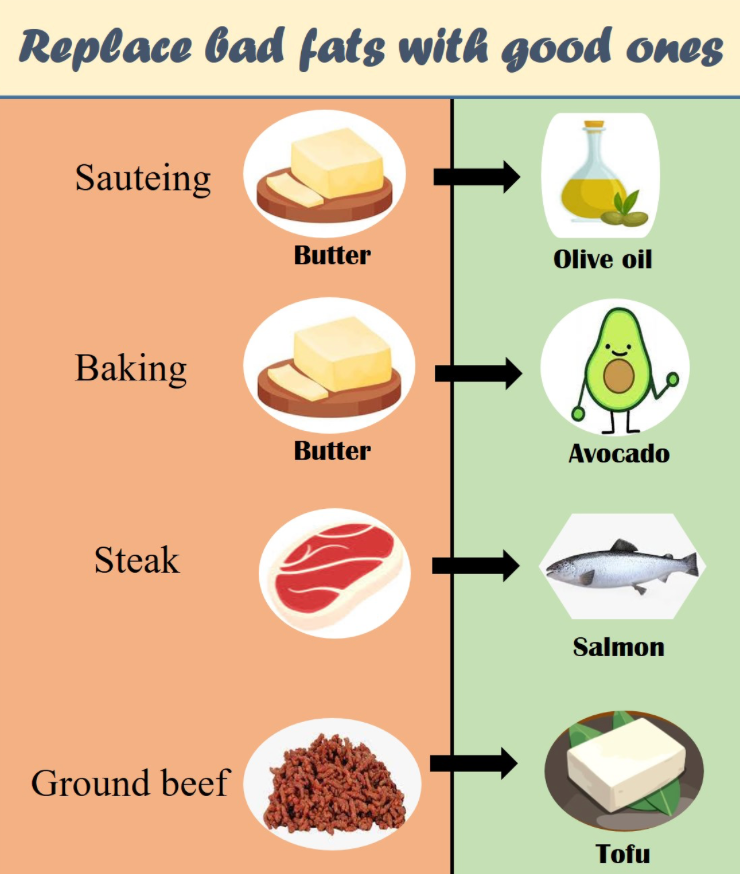
The problem is that these oily fats are chemically unstable, so they can't integrate into the body’s fat storage system or be kept in the blood as energy. Plus PUFAs require extra metabolic effort and introduce risks that make them a poor primary energy source. The body can only extract energy from them at a great cost.
Unlike saturated fats, which are naturally integrated into metabolism, PUFAs require extra liver processing. The liver must detoxify excess PUFAs to prevent oxidative damage. This increases stress on the liver and reduces overall metabolic efficiency.
PUFAs have multiple double bonds that make them highly reactive to heat, oxygen, and light. This means they break down into harmful byproducts before the body can fully use them. This means instead of being burned into energy or stored as usable energy, PUFAs are quickly expelled, taking their potential energy with them.
For years, we’ve been told that salmon, avocado, and olive oil are some of the “healthiest sources of fat” we can eat. The mainstream nutrition narrative pushes polyunsaturated fats (PUFAs) and monounsaturated fats (MUFAs) as superior to saturated fats. But when you actually break it down, these fats do nothing to benefit the body.
- Salmon is still marketed as “heart-healthy” because of its omega-3s, but its high polyunsaturated fat content makes it chemically unstable and prone to oxidation.
- Avocados are praised for their monounsaturated fat (MUFAs), but the body does not prioritize MUFAs for energy storage like it does with saturated fats, as MUFAs are inefficient to process.
- Olive oil is prone to oxidation and breakdown; and unlike butter, it can withstand extreme heat and still not burn off any fat or energy. When exposed to extreme heat, olive oil doesn't burn but instead the double bonds begin to oxidize – producing harmful byproducts (like aldehydes) that are toxic to cells. Even at moderate temperatures, it loses its “health benefits” and becomes inflammatory.
- Most Omega-3s are unstable and oxidize quickly, making them more harmful than helpful. Like olive oil, Omega-3s are polyunsaturated and oxidize easily, creating inflammatory byproducts. Almost all fish oil supplements are highly rancid before they even reach the consumer, and consuming oxidized Omega-3s causes more damage than it prevents.
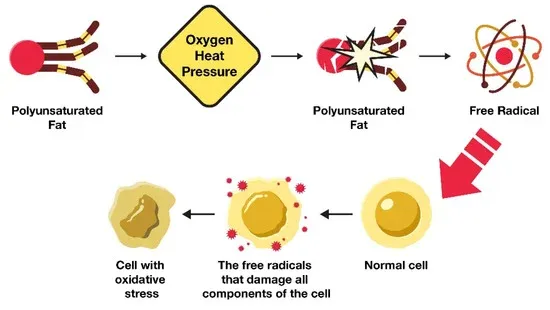
When energy is abundant, the body stores excess calories as triglycerides, and it prefers to store them as saturated fat because:
- Saturated fats pack tightly together in fat cells.
- They do not degrade or become rancid over time.
- They are easy to access when needed for fuel.
PUFAs are better suited for species that require lightweight, fast-metabolizing fuel—not humans, who evolved for endurance and long-term energy storage (like birds).
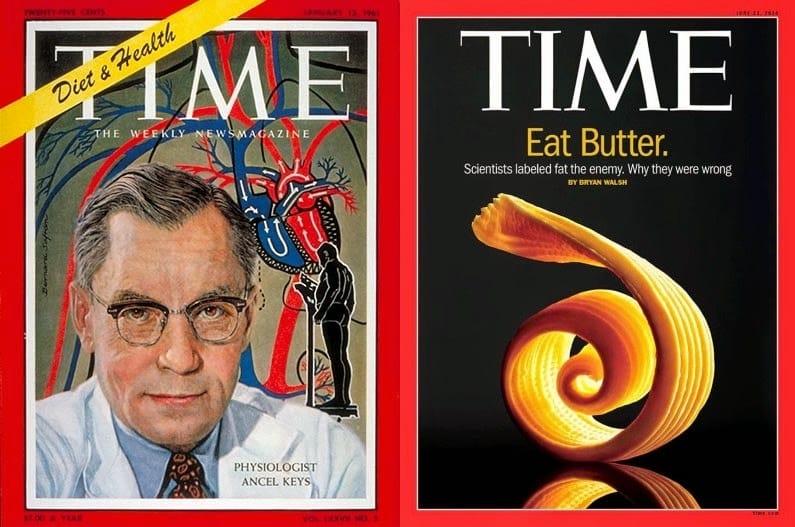
Numerous observational, epidemiological, interventional, and autopsy studies over decades failed to validate the Keys equation and the lipid-heart hypothesis. In fact, it was found that his hypothesis was based on cherry picked data and has since been entirely debunked.
And yet, these have been maintained as the cornerstone of national and international dietary guidelines to this day. Leading Americans to replaced real, whole foods and natural ingredients with chemically altered, low-fat garbage and have become sicker than ever.
But here is the simple truth: we absorb energy best from substances which are best aligned with and most similar to that which our body naturally produces.
The push for plant-based oils and Omega-3s over animal fats was not based on science—it was an industrial, political, and corporate agenda.
The overwhelming scientific consensus supports these unsaturated fats, so why does the biological evidence and historical dietary patterns contradict it?
Because short-term improvements in lab markers do not always translate to long-term health benefits. A substance can “improve” a biomarker while still causing harm to the body overall.
Most studies that show “benefits” from Omega-3s and plant oils look at short-term effects and specific biomarkers, but they don’t examine long-term metabolic damage. Many of these studies focus on risk factors (cholesterol, triglycerides, inflammation markers) rather than actual health improvements like longevity, disease-free survival, and metabolic resilience.
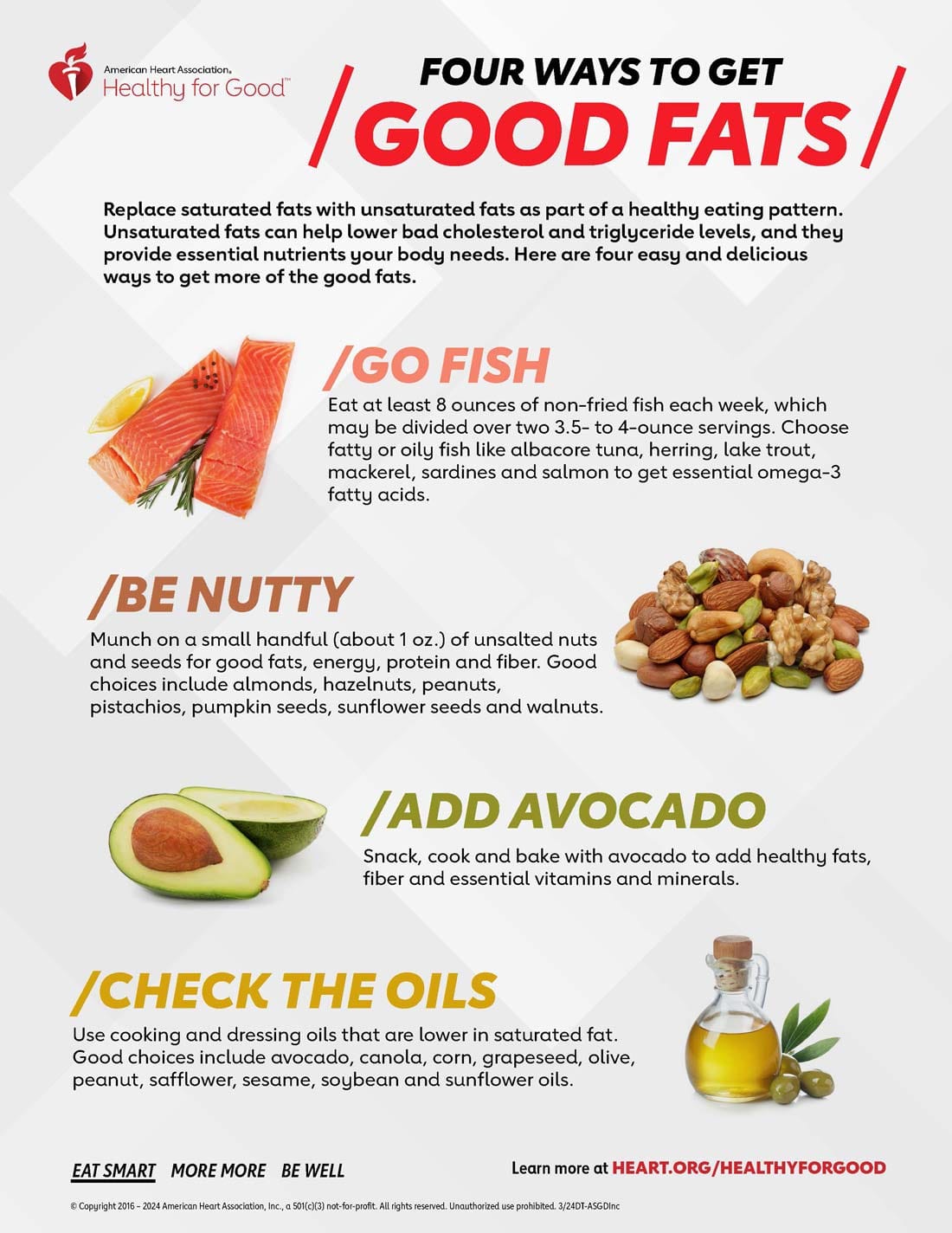
But here are 9 recent studies which have turned the corner and seen the light:
- Harvard Health Publishing (2023): An article titled "The false promise of fish oil supplements" discusses the lack of evidence supporting cardiovascular benefits from fish oil supplements and suggests potential harm. health.harvard.edu
- CNN Health (2024): A study reported by CNN indicates that fish oil supplements may increase the risk of atrial fibrillation, a type of heart disease. cnn.com
- Pharmacy Times (2023): An article reviews the controversy surrounding omega-3 supplements, noting that while they can lower triglyceride levels, their impact on blood pressure and platelet aggregation is minimal, leading to questions about their overall cardiovascular benefit. pharmacytimes.com
- Medical News Today (2022): This piece discusses the anti-clotting effects of omega-3 fatty acids, stating that the evidence is weak and the benefits are controversial. medicalnewstoday.com
- National Institutes of Health (2013): A large study found that omega-3 supplements did not improve brain health in older patients with preexisting heart disease, suggesting limited benefits. nih.gov
- Cleveland Clinic (2023): An article titled "Fish Oil Pills Aren't Doing What You Think They Are" discusses the lack of evidence supporting the cardiovascular benefits of fish oil supplements. health.clevelandclinic.org
- VA Research Currents (2019): This publication highlights the controversy surrounding the health benefits of omega-3 supplements, noting inconsistent research results. research.va.gov
- Wikipedia: The "Omega-3 fatty acid" article references a 2020 review indicating that EPA and DHA do not appear to improve mortality or cardiovascular health, and mentions weak evidence for α-linolenic acid's association with a small reduction in cardiovascular events. en.wikipedia.org
- Wikipedia: The "Fish oil" article discusses uncertainty about the role of fish oil in cardiovascular disease, with reviews reaching different conclusions about its potential impact. en.wikipedia.org
Association of Dietary, Circulating, and Supplement Fatty Acids With Coronary Risk: “Current evidence does not clearly support cardiovascular guidelines that encourage high consumption of polyunsaturated fatty acids and low consumption of total saturated fats”.
Challenges of Utilizing Healthy Fats in Foods: “Solid fats have important physical properties that allow the formation of foods such as baked goods, butter, and ice cream. In addition, polyunsaturated oils and ω-3 FAs are very susceptible to oxidation, leading to development of off-flavors, loss of nutrients, and formation of potentially toxic compounds. Therefore, the substitution of highly unsaturated fats for solids fats could have negative nutritional consequences unless technologies are utilized to prevent their oxidation”.
Saturated Fat: Part of a Healthy Diet
Fats Are Good For You And Other Secrets: How Saturated Fat And Cholesterol Actually Benefit The Body
The Saturated Fat, Cholesterol, and Statin Controversy



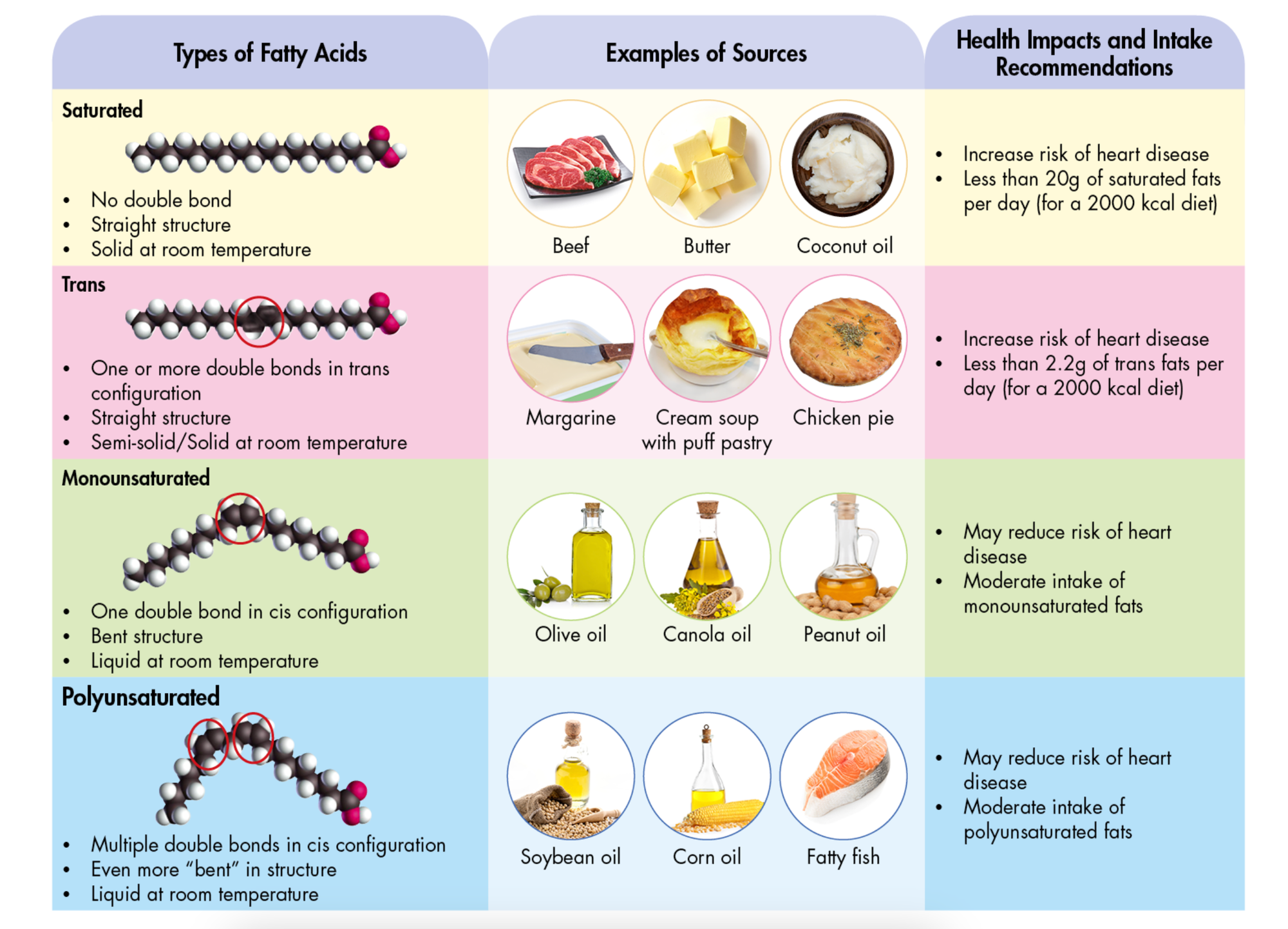

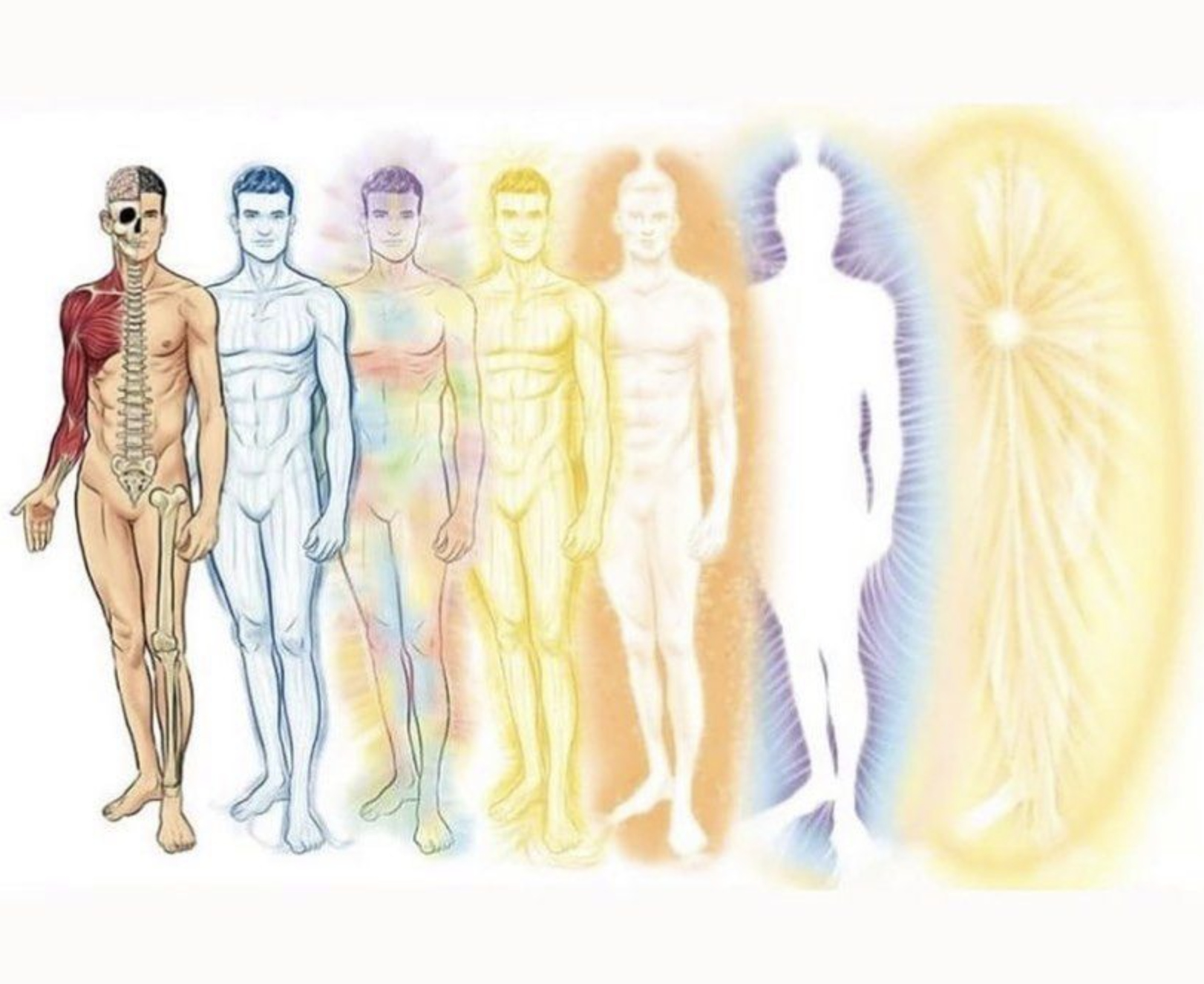


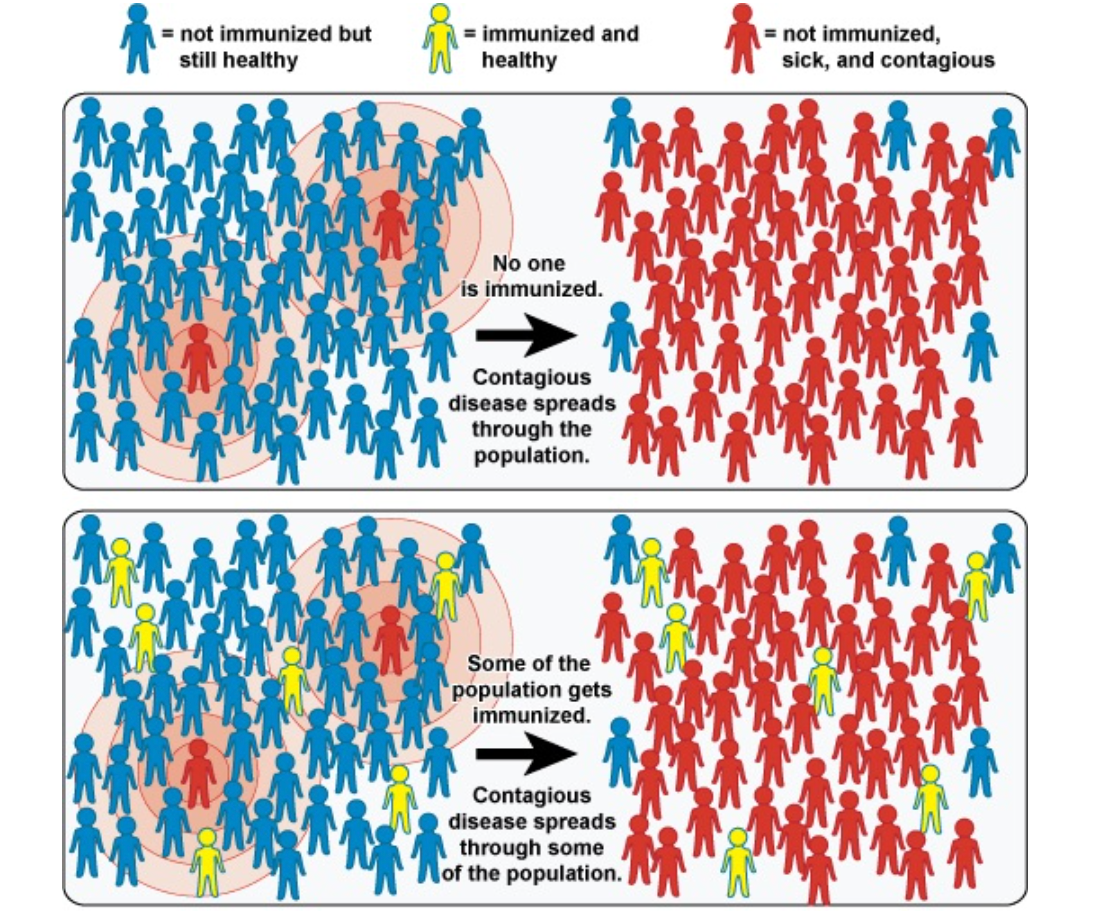





Discussion